Definition
Polycystic kidney disease is the inherited kidney disease that affects the kidney and other organs. The fluid-filled sacs are developed in the kidney and that disrupts the kidney filtering function and their ability to filter waste products from the blood. The cyst formation causes the kidney to become enlarge and may lead to kidney failure. The cyst may also develop in other organs such as the liver. PKD severity and complications vary based on the cyst size.
Epidemiology
- Autosomal-dominant PKD (ADPKD) occurs worldwide and in all races. Prevalence in the US is estimated to be between 1 in 400 (including observed and estimated autopsy cases) and 1 in 1000 (clinically diagnosed cases only). Approximately 600,000 Americans are affected by the disease, with over 2000 patients starting renal replacement therapy reported due to cystic kidney disease every year.
- In Copenhagen, prevalence is estimated to be 1 in 1000; however, lower figures have been reported in France (1 per 1111), Wales (1 per 2459), and Japan (1 per 4033). In Seychelles, the prevalence in the white population was found to be 1 in 544, but the disease was rare in black people.
- ESRD due to ADPKD is less common among black people than among white people because of the higher incidence of ESRD from other causes in black people.
- Annual US incidence rates for ESRD caused by ADPKD (1998-2001) was 8.7 million in men and 6.9 million for women; in Europe (1998-1999) the rates for men were 7.8 million and 6 million for women; and in Japan, 5.6 million for men (1999-2000) and 4 million women. Autosomal recessive PKD is far less common with an incidence of 1 in 10,000 to 1 in 40,000
Pathophysiology of polycystic kidney disease
- The primary abnormalities lead to cyst formation in both the types recessive and autosomal dominant forms of PKD.
- It is related to the defects in cilia-mediated signaling activity and mainly due to the defect in the primary cilium an immotile, hair-like cellular organelle present on the surface of most cells in the body, anchored in the cell body by the basal body.
- In the kidney, primary cilia have been found to be present in most cells of the nephron, projecting from the apical surface of the renal epithelium into the tubule lumen.
- In response to fluid flow over the renal epithelium, the primary cilium is bent, resulting in a flow-induced increase in intracellular calcium.
- Polycystin-1, Polycystin-2, and fibrocystin, the proteins associated with ADPKD and ARPKD, within the primary cilia and basal body of renal tubular epithelia, suggesting that defects in these proteins and subsequent cilia formation may lead to PKD
Types
There are three main types of PKD
Autosomal Dominant PKD (ADPKD): This type of PKD occurs is passed from parents to the child by dominant inheritance. The one copy of the abnormal gene is needed to cause the disease. Symptoms occur usually between 30 to 40 ages. Sometimes it may begin in the early childhood days; it is the most common forms of PKD which about 90% of the PKD cases are ADPKD
Infantile or Autosomal Recessive PKD (ARPKD): This type occurs by recessive inheritance passed from parent to child. It may arise in the early beginning days of childhood or it starts when the baby inside the mother womb. It will be very serious and tend to progress rapidly. It is more often fatal in the first few months of life. This type of ARPKD is rare since it occurs 1 in 25000 people.
Acquired Cystic Kidney Disease (ACKD): It may happen in the kidney with long-term damage and serves to scar. Thus it leads to kidney failures and dialysis. Symptoms occur such as blood in urine, it is because the cyst bleeds into the urinary system and it discolors the urine. About 90 percent of people on dialysis for 5 years develop ACKD.
Risk factors of polycystic kidney disease
- Diverticular disease of colon
- Chronic Peritoneal Dialysis
- Family history of disorder
- Kidney Stones
- Liver Cyst
- Pancreatic Cyst
- Cyst of testes
- Parental Carrier of Gene
Causes
The abnormal gene causes the polycystic kidney disease. Mostly it runs in the families and sometimes it occurs by single gene mutation so that neither parent has a copy of the mutated gene.
Symptoms
Usually, the most common symptoms associated with kidney diseases are the pain in the back and sides of the ribs, and headache. The symptoms can be mild or severe and occur intermittently or persistently as follows:
- Swollen and tender abdomens
- A lump on either side of the tummy
- Enlarged kidney
- Kidney stones
- High blood pressure
- Blood in the urine or haematuria
- Urinary tract infections
- Liver and pancreatic cysts
- Feeling fullness or indigestion due to the impact of pressure by the enlarged kidneys
Complications of polycystic kidney disease
- A hernia
- Abnormal heart valves such as an aneurysm
- Kidney infection
- Diverticulosis (small pouches in the bowel)
- Loss of kidney function
- Colon problems
- Chronic pain
- Inability to lie still in one position
- Renal failure
- Sclerosis of the renal arterioles and capillaries
- Destruction of the nephrons by expanding cysts
Diagnosis and Test
Imaging studies
The major and foremost diagnosing parameter is the size of the kidney. There are certain imaging techniques to visualize and measure the kidney size as follows.
- MRI scan.
- CT -scan.
- Ultrasound
Genetic testing
A genetic test is done to screen the mutations of PKD1 or PKD2, although it is limited by their cost and the test’s inability to make a diagnosis. The genetic test is performed only for the following reasons.
- A young adult with the family history of PKD.
- A person whose imaging results are not certain information on PKD.
- Pregnant women with family history of PKD.
Pre-implantation screening: For the families who decide to have IVF (in vitro fertilization) procedures, can be screened for PKD mutation to ensure no PKD with the developing embryo.
Polycystic kidney disease treatment
PKD treatment focuses mainly on reducing the progression of kidney failure and to treat the associated effects such as kidney infections, kidney stones, and abdominal pain.
High blood pressure: high BP can be slowed down to control the progression of kidney failure. Medications such as angiotensin-converting enzyme (ACE) inhibitors or angiotensin II receptor blockers (ARBs) can be used to control high blood pressure
Dietary restriction: Consuming a low-sodium, low-fat diet that’s moderate in protein and calorie content with not smoking, increasing exercise and reducing stress may help control high blood pressure.
Kidney failure: Kidney transplantation can help for the survival of the PKD patient.
Blood in the urine: To reduce such problem drink plain water to dilute the urine as soon as you noticed blood in the urine.
Bladder or kidney infections: Use appropriate antibiotics with prompt concentrations and doses.
Aneurysms: Controlling high BP automatically will reduce the damaged blood vessels. In the severe cases please inform get a help from a doctor.
Pain: Pain relief tablets can be given to get rid of from the vigorous pain in the back and sides of the kidney.
Tolvaptan: Tolvaptan is taken orally (as a tablet). It can slow the rate at which your kidneys become enlarged by cysts and can help to slow the speed at which your kidney function declines. Tolvaptan does not alter the growth of liver cysts.
Prevention of polycystic kidney disease
- Following strict diet without lipid, avoiding sports, and BP control are all initial options.
- Smoking cessation, regular exercise.
- Low sodium, restricted protein, and a low-cholesterol diet should be followed yearly.
- Patients suspected of PKD should avoid caffeine. Minimize daily caffeinated beverage intake and avoid caffeine-containing foods or related drugs, such as theophylline as they increase levels of cAMP in vitro, which exhibits exacerbate cyst enlargement.
 Diseases Treatments Dictionary This is complete solution to read all diseases treatments Which covers Prevention, Causes, Symptoms, Medical Terms, Drugs, Prescription, Natural Remedies with cures and Treatments. Most of the common diseases were listed in names, split with categories.
Diseases Treatments Dictionary This is complete solution to read all diseases treatments Which covers Prevention, Causes, Symptoms, Medical Terms, Drugs, Prescription, Natural Remedies with cures and Treatments. Most of the common diseases were listed in names, split with categories.
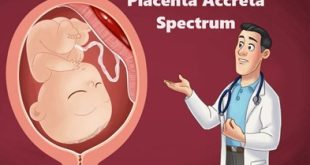
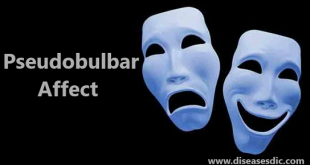
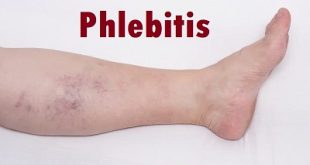
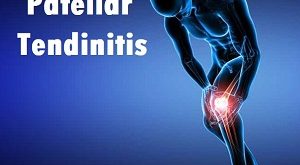
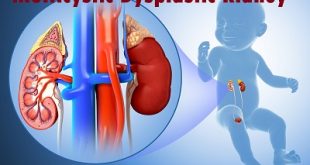
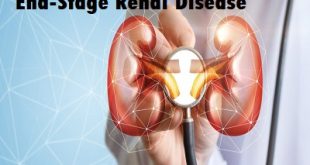
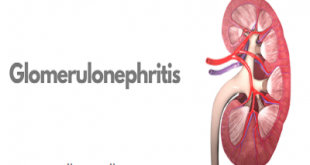

I sit and work,sleep in my car constantly only twice a week am I out of the car I have some sort of feces compaction problem can you help she’d light on why I have some sort of soiling blow by7
have some fibrous food so that you will not have feces compaction problem.
I just have some stomach tenderness to touch..I mean when I touch my stomach , I feel pain…I went to the hospital..I was told I had cyst on my kidney…I was asked to run test like FBC,Urinalysis…they said my kidney still function well and they said there is nothing they could do the cysts..please help me and reply back.
consult a good doctor to get cure of this problem.
what can of food can a kidney infected person is so pose to take
Peppers
Apples
Garlic
Onions
Cabbage
Cauliflower
Olive oil
Watermelon
Cranberries
Strawberries
Blueberries
Raspberries
Add more of these to your diet, and kiss those infections goodbye!
thanks I am grateful for responding for all my question ,my nest question what are the food that is exempted from eating by kidney infected person
side of my rib is pain internal , urine ten times in the night ,neck pain, headache . nose block, sincetive cold my body, what will I do
Please consult a doctor immediately to avoid serious effects in future.
i felt pain in my left kidney side. hope i could be able to reach your place.
My wife sometimes use to feel a stabbing pain in her left side,in the hospital the Dr said is a kidney problem,but he didn’t gave me a clear explanation please can you help?
Please consult and have a proper discussion with a nephrologist.
my kidny is problem. my
S. Creatinine :3.5
S.chol:479
Tg:489
LDL:284
now can you help me medicine name can i buy medicine if reply me please.
Please consult a doctor.
d doctor said i have 1 kidney as a result of given birth.so what should I do? Help me
please consult a doctor and get treated.
I’m having kidney pain what should ido
please consult a doctor.
what to be used in case of kidney affection
Antibiotics are the first line of treatment for kidney infections. Which drugs you use and for how long depend on your health and the bacteria found in your urine tests. If your kidney infection is severe, your doctor might admit you to the hospital. Treatment might include antibiotics and fluids that you receive through a vein in your arm (intravenously). How long you’ll stay in the hospital depends on the severity of your condition.
what about therapeutic medication please
Angiotensin-converting enzyme (ACE) inhibitors and angiotensin-2 receptor blockers (ARBs) to treat high BP
painkiller is paracetamol.
Tolvaptan used to slow down the growth of cysts.
i normally had back pain when i run a test they said that i had staphylococcus, can staph causes back pain?
please I have been experiencing sever pain at the right side of my waist.am I also affected ?
once consult a doctor and diagnose the problem.
hi all
my comment or my questions regarding to kidney stones or the doctors said to me your kidney tube have a stone so what is the solutions to remove the stone from the tube. my son is 11 his age so pls advice me the solutions
Please consult a doctor.
what is kidney tube stone
Urine leaves your body through the urethra. Kidney stones form in the kidney. Some stones move from the kidney into the ureter. The ureters are tubes leading from the kidneys to the bladder. If a stone leaves the kidney and gets stuck in the ureter, it is called a ureteral stone.
I really appreciate your efforts towards this enlightenment.
But I sincerely want to know if there is any relationship between urinary tract infection like syphilis, staphylococcus and kidney disease itself.
The symptoms of both the disease seem to be similar but they are different in actions.
sir I used to feld fain for my right back kidney side and I used feld high blood pressure
please consult a doctor asap.
I feld back pain for my right back kidney side and high blood pressure.
what is best solution for me,?
Please consult a urologist for better consultation.
have been feeling pain at my left kidney,for over 5yrsnow,been to a pharmacist prescribed some drugs, relieved me ,but the pain though mild still persist,most esp wen I drank , sugary substance,or drink…so what can I do
please consult a nephrologist.
I visited the doc and run some renal test, biochemical test, urinary test and an Ultrasound scan but the doc said the tests are gud. But I keep feeling consistent pain on my right side towards my back. What else can I do?
It may be of spinal pain. Please consult a doctor.
My baby’s abdomen is enlarging and when they ultrasound,they found out that he has obstruction of the left kidney.Is their a medicine that can cure it? Please help me.My baby’s abdomen is enlarging and when they ultrasound,they found out that he has obstruction of the left kidney.Is their a medicine that can cure it? Please help me.
Please consult a nephrologist.
Is their a medicine that can cure a kidney obstruction? please help my baby
Please consult a doctor to get the medicine for kidney obstruction.
I ran a CT scan and the following was seen please help what does that mean and how can I treat it
1) Simple cyst in the bilateral kidneys, and in the liver parenchyma
2) Non-obstructive calculus in the lower calyx of the left kidney
3) Gastritis.
thanks
Please consult a nephrologist for a better prescription of the medicine.
The hypertension drugs methyl dopa: nifecard : and carvedilol given still the bp is high why?
If blood pressure remains high despite taking medications like methyldopa, nifedipine (Nifecard), and carvedilol, possible reasons include the need for dosage adjustments, consideration of additional antihypertensive medications, and addressing lifestyle factors. Regular communication with a healthcare provider is crucial to assess overall health, review medication effectiveness, and make necessary adjustments for optimal blood pressure control. Never adjust medication dosages without consulting a healthcare professional.